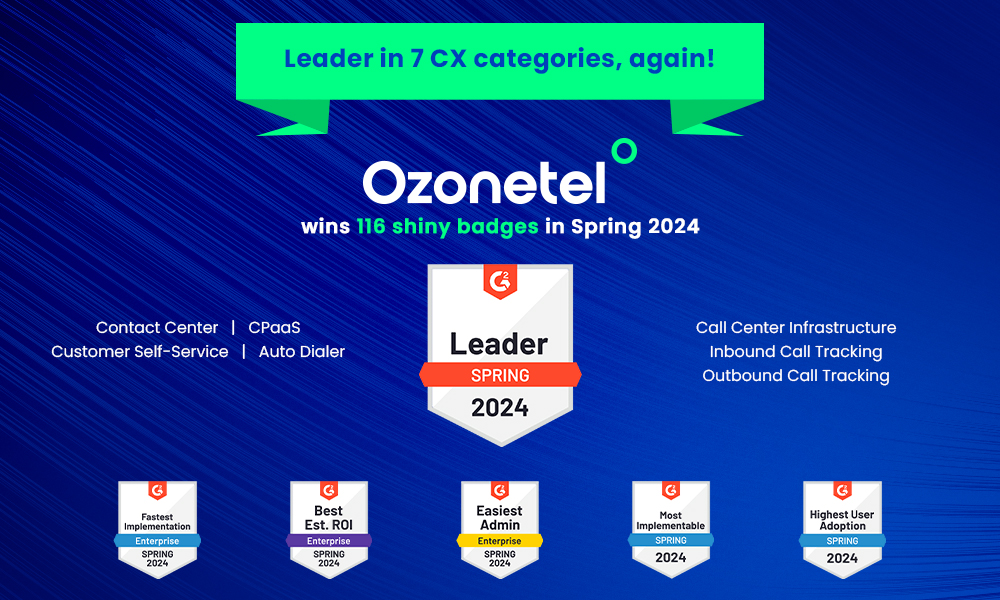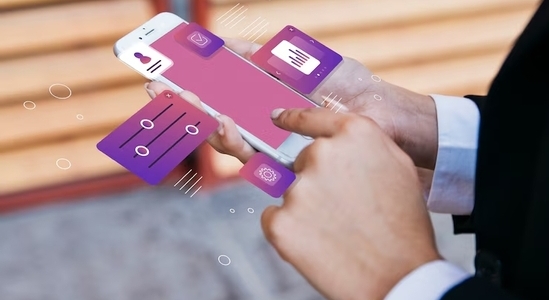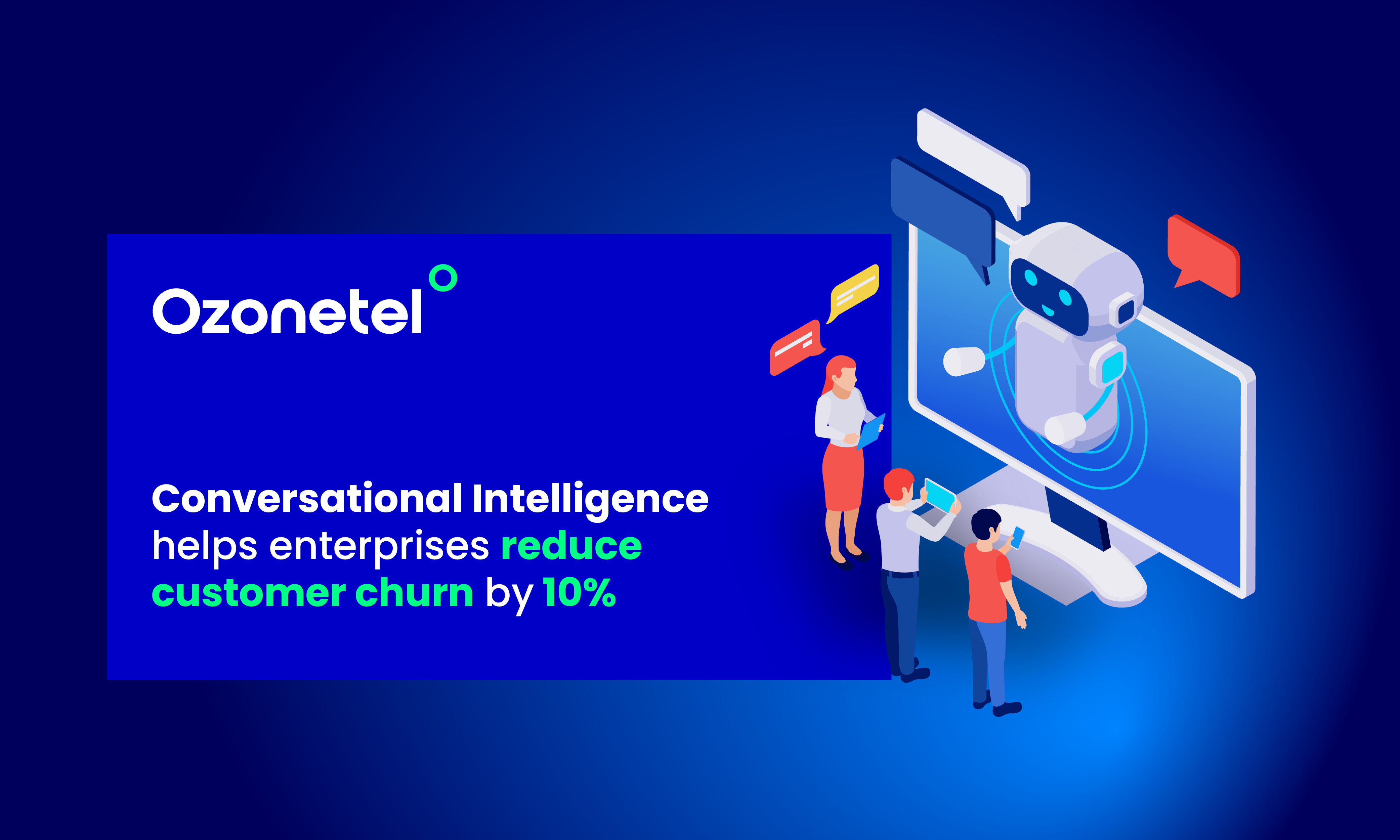- Resources
- Can IVRS Revolutionize Communication for SME’s?
Yes, Learn How.
Can IVRS Revolutionize Communication for SME’s?
Yes, Learn How.

Did you know that 71% of consumers expect personalized assistance from businesses? Effective communication is crucial for small and medium-sized enterprises (SMEs) to thrive in today’s competitive business landscape. One powerful tool that SMEs can leverage is the Interactive Voice Response System (IVRS). In this article, we will explore the significance of IVR for SMEs and provide practical guidance on how to create and implement an IVRS system to SME communication and efficiency.
What is IVR?
Interactive Voice Response is a technology that allows callers to interact with an automated system using their telephone keypad or voice commands. It is commonly used by businesses to provide self-service options to callers, such as retrieving information, making selections, or completing transactions without the need for human intervention.
The Benefits of IVR Solution for Small Business
Let’s now discuss some benefits of IVR that can help make your business better
Faster Customer Service
IVR makes it easy for your customers to quickly get the help they need. They don’t have to wait on hold to talk to a real person. Instead, they can use the phone’s keyboard or voice commands to move through the choices. This saves time and makes both your customers and your workers less angry.
24/7 Availability
With IVR, buyers can reach your business at any time of day or night. People can use IVR to get information, place orders, or leave notes even when the business isn’t open. This means that even when your office is closed, your business can still run and serve customers.
Personalized Experience
IVR lets you give your customers a more personalized experience. Using caller ID or saved customer information, you can greet guests by name and give them options based on how you’ve worked with them before. This makes people feel like you care about them and improves their general experience with your business.
Saves Cost and Time
Did you know that using IVRS technology can save a business up to 30% on customer service costs? This is because IVRS systems can handle a lot of customer questions at once, which means less staff and resources are needed.
Improved Call Routing
IVR makes it easy to route calls to the right area or person, depending on what the speaker wants. This makes it less likely that a call will be moved more than once, which can be annoying for customers.
Designing an Effective IVRS for Your SME
When creating an IVRS for small businesses, it’s important to design it effectively to maximize its benefits. Here are some key considerations to keep in mind:
Understand Your Customers’ Needs
Start by learning what your customers want and need. Look at their most common questions, problems, and favorite ways to get in touch. With this information, you can make your IVRS system fit their needs and give them a smooth experience.
Simplify Menu Options
Your IVRS implementation should have a menu that is easy to use. Sort the most-used services into groups and put them at the top of the list so that they are easy to find. By making the choices easier to understand, you can reduce callers’ frustration and make it easier for them to use self-service.
Implement Self-Service Options
Add self-service choices to your IVRS system to give callers more control. Self-service choices can be used to do things like track orders, pay bills, or make appointments. This saves time for both the callers and your team, allowing them to handle more complicated questions.
Seamless Agent Escalation
IVRS implementation should include a seamless process for callers who need to be transferred to a live agent. Ensure the smooth transfer of information from the IVRS to the agent, so callers don’t need to repeat themselves. Use integration with CRM systems or call routing technologies to connect callers to the most appropriate agent efficiently.
Regular Testing and Optimization
Continuously test your IVRS system to identify areas for improvement. Conduct usability testing with a diverse group of users to gather feedback. Analyze call data and user interactions to optimize prompts, menu options, and call flows.
By following these design considerations, you can create an effective IVRS for SMEs.
How to Choose the Right IVRS Provider for Your SME?
Selecting the right IVRS solutions is crucial for the success of your SME communication system. Here are some important factors to consider when making this decision:
- Reliability and Scalability
- Customization Options
- Integration Capabilities
- Reporting and Analytics
- Customer Support and Training
- Pricing Model
Reliability and Scalability
Look for IVRS solutions that offer a reliable and scalable model. Ensure their system can handle your current call volume and has the capacity to grow with your business. Downtime or limitations in capacity can negatively impact customer experience and hinder your business operations.
Customization Options
Assess the level of customization the IVRS solutions offer. Your SME has unique requirements, and the provider should be able to tailor the IVRS system to meet your specific needs. Customizable prompts, menu options, and call flows ensure that the IVRS aligns with your business processes and branding.
Integration Capabilities
Consider the integration capabilities of the IVRS provider. Check if they can seamlessly integrate with your existing CRM system, call center monitoring tools, or other business applications.
Reporting and Analytics
Evaluate the reporting and analytics features provided by the IVRS provider. Access to comprehensive call analytics and reports enables you to gain valuable insights into call volumes, customer behavior, and IVRS performance.
Customer Support and Training
Assess the level of customer support and training offered by the IVRS provider. A reliable support team that is accessible when you need assistance is essential. Additionally, ensure they provide adequate training for your staff to effectively use and manage the IVRS system.
Pricing Model
One of the important aspects is to consider the cost and pricing model offered by the IVRS provider. Compare different providers to find a solution that fits within your budget without compromising on essential features and quality.
A well-selected IVRS provider will enhance your communication capabilities, improve customer satisfaction, and drive the success of your SME.
Why is Integrating IVRS with CRM and Other Business Apps Important?
When you connect your IVRS system to CRM (Customer Relationship Management) and other business apps, your SME can get a lot of benefits. This easy connection makes it simpler to communicate and improves the speed of operations.
Let’s look at how integrating IVRS with CRM and other software can help your SME:
Unified Customer Experience
By integrating IVRS with your CRM system, you can see all of your contacts with customers in one place. When a buyer reaches out through the IVRS, their details and past interactions are immediately added to their CRM record. This makes it easy for your workers to give fast, personalized service because they can look up important customer information right away.
Enhanced Data Insights
Integrating IVRS with tools for data analysis gives useful data insights that can help people make better decisions. By looking at both IVRS call data and data about how customers behave, you can learn more about customer tastes, pain points, and trends.
Efficient Call Routing
Integrating IVRS and CRM makes it possible to route calls smartly based on customer profiles or other specific factors. For example, high-value users can be immediately put at the top of the list and sent to specialists. This makes sure that customers get a more personalized and effective service, which makes them happier and more loyal.
By connecting your IVRS system to your CRM and other business apps, you can build a unified communication system that saves processes, improves the customer experience, and makes your business more efficient overall.
Best Practices for Managing Your IVRS
To ensure that your system runs smoothly, here are some simple IVRS best practices to follow:
Monitor Performance
Check your IVRS often to see how well it is working. Look at important measures like how long people have to wait and how often self-service works. If you keep an eye on these numbers, you can see if there are any problems and fix customer wait times, which will make their experience better.
Train and Update
Make sure that your IVRS workers continue to learn. This helps them better handle questions from customers. Also, keep up with the latest software and hardware changes for IVRS. With these changes, your system stays in good shape and can keep up with changing customer needs.
Use Clear Prompts
Make your IVRS menu’s voice messages clear and easy to understand. Don’t use hard-to-understand words or directions. Callers can quickly find what they need if the choices are clear, which cuts down on frustration and needless transfers.
Test and Improve
Regularly test your IVRS system to make sure it works well. Use feedback from users to identify areas that can be improved. By fine-tuning your prompts and options based on feedback, you can make your IVRS more effective and user-friendly.
Listen to Customers
Make sure your IVRS works well by testing it often. Use comments from people to figure out what needs to be changed. By making small changes to your messages and choices based on what people say, you can make your IVRS easier to use.
By following these simple practices, you can manage your IVRS system effectively, provide a better experience for callers, and make the most of your investment.
How to Leverage Ozonetel’s IVR Solution for Small Business Enterprises
When creating your IVR system, there are a few important things to think about. First, understand what your business needs and what your customers want. Then, choose the right IVRS solutions and providers that fit your needs. It’s also important to connect your IVRS system with other tools you use, like CRM software, to make everything work together.
With a strong focus on delivering exceptional customer experiences, Ozonetel offers innovative IVR (Interactive Voice Response) solutions that empower small and medium-sized enterprises (SMEs) to streamline their communication processes.
The platform uses an easy-to-use API connection and back-end portal to design IVR menus for inbound calls easily and automates IVR call flow process with state-of-the-art software and AI technology. Our self-service solutions are proven to triple call handling capacity while enabling 4x faster response times. Using Ozonetel’s no-code, drag & drop IVR, businesses can quickly deploy IVRs on their own, accommodating time-based routing, customized greetings, and more.
How Ozonetel’s IVR Solution transforms User Experience
- Deflect redundant calls, reduce call volumes, improve CSAT.
- Self-Service IVR for customers, saving agents & CS managers’ time for essential tasks.
- Integration of APIs and webhooks with number masking for secure interactions.
- Natural Language Processing enables the caller to converse freely with our IVR system.
Conclusion
To sum up, IVR systems offer significant benefits to SMEs, empowering them to streamline customer interactions, improve operational efficiency, and enhance the caller experience. By leveraging an advanced IVR solution, SMEs can effectively manage incoming calls, provide personalized experiences, and optimize resource utilization. This not only leads to cost savings and business growth but also enhances customer satisfaction and loyalty. So, the implementation of IVR is a crucial step for SMEs to elevate their customer service capabilities and thrive in today’s dynamic business landscape.
Ready to take control of your call transfer
experience for better CX outcomes?
Frequently Asked Questions
An IVR is a technology that allows businesses to automate and streamline incoming call processes by providing pre-recorded messages. It allows callers to choose from voice menu options and interact using voice and number pads. Businesses can use a fully customizable, intelligent IVR system to build their own auto attendant, self-service, and smart call routing services.
There are two basic types of IVR: inbound and outbound. Inbound IVR systems handle incoming call volume, while outbound IVR systems make calls fully or partially automated. Features-wise, there are other forms of IVR. For example, speech-enabled IVR systems use advanced speech recognition technology to allow callers to interact using their voice rather than keypad inputs. The visual IVR offers additional self-service capabilities and enhances the user experience by offering a visual interface along with audio prompts.
IVR offers multiple benefits for small businesses and startups. As a result, it eliminates the need for dedicated receptionists, handles large volumes of calls efficiently, offers scalability, routes calls efficiently, and provides round-the-clock customer support. It’s important to design and implement the IVR system effectively to ensure a seamless and user-friendly experience for callers.
Businesses choose to use the WhatsApp Business API instead of the regular WhatsApp app for the following reasons:
Business-specific Features: The WhatsApp Business API offers additional features and functionalities tailored for businesses, such as automated responses, chatbots, message templates, and integration capabilities.
Scalability: WhatsApp Business API offers scalability and can handle a high volume of messages and customer interactions, making it suitable for businesses with large customer bases or high messaging requirements.
Compliance and Security: The WhatsApp Business API provides enhanced security and compliance measures, ensuring the privacy and protection of customer data.
Integration Capabilities: The WhatsApp Business API allows seamless integration with existing business systems, CRM platforms, and other tools.
Official Business Presence: By using the WhatsApp Business API, businesses can have an official presence on WhatsApp, separate from personal accounts.
IVR handles various tasks such as providing general information, routing calls to the appropriate departments or agents, offering self-service options for common queries, collecting customer feedback, and more. By leveraging an IVR, businesses can reduce wait times, improve FCR and provide a more personalized and efficient customer experience.
Prashanth Kancherla
Chief Operating Officer, Ozonetel Communications
Over the past decade, Prashanth has worked with 3000+ customer experience and contact center leaders...
Chief Operating Officer, Ozonetel Communications
Over the past decade, Prashanth has worked with 3000+ customer experience and contact center leaders to comprehensively understand the need for effective and efficient customer communications at every step of their journey with a brand. Deeply embedded in today’s CCaaS ecosystem, he has been instrumental in Ozonetel's growth and contributed in various roles including product management, sales, and solution architecture.







